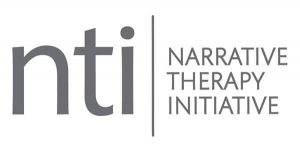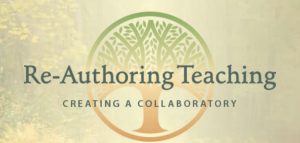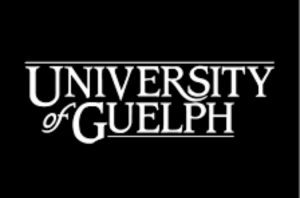Friday, September 29th, 2023; 10:00 am to 5:00 pm Eastern
July 2023 – Summer Narrative Therapy Intensive
Friday, May 12th, 2023 – 10am to 5pm EST
Location: online via Zoom
October 30th, 2022-February 19th, 2021 – Consultation Group
Exploring Our Relationship With Narrative Questions
What Is Narrative Therapy? July 21st, 2020. A full day workshop offered through the The School of Social Welfare Continuing Education Program at the University at Albany.
Narrative Therapy In Practice – June 6th & 7th, 2020 (sold out). If this workshop is of interest there will be another in the summer, please contact NTI for details
What is Narrative Therapy: A Taste and Tales from Practice – May 9th, 2020
The Politics of Documentation: Narrative Documentation Practices and Letter Writing, Guest Lecturer in the Couple & Family Therapy Program, October 16th, 2019
Anti-Machinalization (a.k.a. Burn-out) Global Summit, September 15th, 2019
Have you seen anyone spending extraordinary hours working in isolation with the best of intentions, being fueled by expectations or a sense of obligation/responsibility even though the initial fuel was unmistakably passion, curiosity, creativity and/or social justice? We have a suspicion that Machinalization of human beings today is never a personal problem but a globally witnessed/experienced phenomenon that could potentially have life-suffocating, or even life-threatening effects on our lives. The summit started with Sumie Ishikawa’s sharing her ‘insider experiences’ and her hope-generating discoveries as to how we could possibly co-resist Machinalization, followed by Amy Druker interviewing Sumie and an outsider witness. Participants were invited to join in a group discussion, where taken-for-granted Machinalizing discourses and practices that are woven into the capitalistic structure of modern society can be called into question. Let’s imagine together small acts of co-resistance so that the human part of us can survive and thrive in this Machinalizing time we live in today!
Faculty, Narrative Therapy Summer Intensive – Level 1, July 8-12, 2019 & Level 2, July 15-19, 2019, Toronto, ON
www.narrativetherapycentre.com
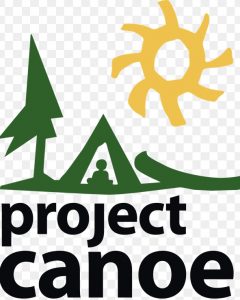
Introduction to Narrative Therapy, a half day workshop, June 6th, 2019 Toronto, ON

Bridging the Gap: A Narrative Therapy Intensive
Thursday, February 21 & Friday 22, 2019
Hintonberg Community Centre, Ottawa, ON
www.glebeinstitute.com
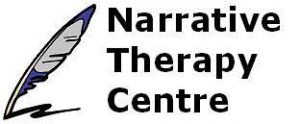
What’s In A Name: The Politics of Externalizing and Deconstructing, Narrative Summer Intensive, July 2017 and July 2018, Toronto, ON
Who ought to have the right to name the problem(s) that we face? Narrative therapists invite individuals/families to name the problems that they are facing for themselves. This invitation is political in intent; thus the narrative practice of externalizing is not just a technique, but a political act. In this workshop, we aim to examine how deconstruction guides externalizing practices, and how to bridge the personal to the political when working at the micro level.
- Participants will gain a understanding of the theoretical framework that underpins narrative practices
- Participants will be invited to explore their own relationships with ‘naming’ practices and ‘externalizing’ and the values, ethics, personal politics that underpin their own preferred ways of working
- Participants will gain experience in deconstructing problems in the context of a therapeutic conversation
- Participants will gain experience in externalizing through an interactive activity
Addressing Power Inequalities Through Collaborative Positioning and Narrative Therapy, Narrative Summer Intensive 2018
Presenters will illustrate examples of documentation practices that call into question dominant ways of thinking about and taking up the task of documenting the interactions we have with the people we serve. Narrative letter writing, collective documentation, follow up letters, counter-documents will be covered. Questions such as: What tends to get included in your documentation of an interaction with a person and what gets left out? How is power used through documentation practices? In what ways are its uses oppressive? Can power be used in a generative way when we’re tasked with documenting an interaction with a person?
- Participants will explore their own relationships with documentation practices, and the values, ethics, personal politics that guide their preferred ways of ‘doing documentation’ through an interactive activity.
- Participants will gain an understanding of the theoretical framework that underpins these counter documentation practices
- Participants will hear from a youth consultant about her experience of a collaborative “co-authorship” documentation practice, its effects on the young person, therapist and on the therapeutic alliance.
- Participants will learn about narrative documentation practices and will be invited to engage in a narrative letter writing exercise.
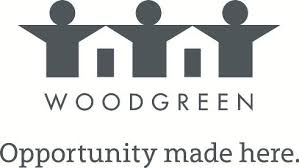
Addressing Power Inequalities Through Collaborative Positioning and Narrative Therapy, WoodGreen Community Services, December 2017 and May 2018
Presenters will illustrate examples of documentation practices that call into question dominant ways of thinking about and taking up the task of documenting the interactions we have with the people we serve. Narrative letter writing, collective documentation, follow up letters, counter-documents will be covered with attention paid to documentation pertaining to a walk-in setting. Questions such as: What tends to get included in your documentation of an interaction with a person and what gets left out? How is power used through documentation practices? In what ways are its uses oppressive? Can power be used in a generative way when we’re tasked with documenting an interaction with a person?
- Participants will explore their own relationships with documentation practices, and the values, ethics, personal politics that guide their preferred ways of ‘doing documentation’ through an interactive activity.
- Participants will gain an understanding of the theoretical framework that underpins these counter documentation practices
- Participants will hear from a youth consultant about her experience of a collaborative “co-authorship” documentation practice, its effects on the young person, therapist and on the therapeutic alliance.
- Participants will learn about narrative documentation practices and will be invited to engage in a narrative letter writing exercise.
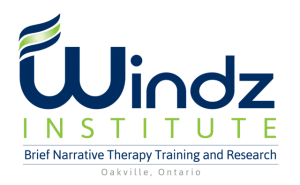
Addressing Power Inequalities Through Collaborative Positioning and Narrative Therapy, Walk-In Counselling Clinic Symposium, Windz Institute, Oakville, ON, 2017.
Presenters will illustrate examples of documentation practices that call into question dominant ways of thinking about and taking up the task of documenting the interactions we have with the people we serve. Narrative letter writing, collective documentation, follow up letters, counter-documents will be covered. Questions such as: What tends to get included in your documentation of an interaction with a person and what gets left out? How is power used through documentation practices? In what ways are its uses oppressive? Can power be used in a generative way when we’re tasked with documenting an interaction with a person?
- Participants will explore their own relationships with documentation practices, and the values, ethics, personal politics that guide their preferred ways of ‘doing documentation’ through an interactive activity.
- Participants will gain an understanding of the theoretical framework that underpins these counter documentation practices
- Participants will hear from a youth consultant about her experience of a collaborative “co-authorship” documentation practice, its effects on the young person, therapist and on the therapeutic alliance.
- Participants will learn about narrative documentation practices and will be invited to engage in a narrative letter writing exercise.

The Politics of Documentation: Dismantling Power-Hierarchies Through Documentation Practices, Guest Lecturer at the University of Toronto MSW class on Narrative Therapy 2016, 2017 and 2018.
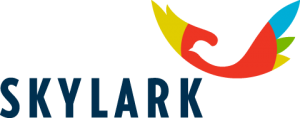
Introduction To Narrative Therapy: a Half Day Workshop, Narrative Mornings at Skylark
The stories that we tell and the stories that are told about us contribute to conclusions about who we are. These stories are not neutral in their effects. When young people or families seek help, it is often the “problem story’ that takes precedence. A “problem story’ becomes influential in way that a young person, family or community is seen by others and experienced by self.
How can we contribute to the development of story lines that acknowledge difficulties and yet offer hope to people facing challenges in life?
Our aim is that participants will leave the workshop with:
- An understanding of the theoretical framework that underpins narrative practices
- An experience of exploring their own values, ethics and personal politics
- Skills in deconstructing problems, externalizing and re-authoring

The Politics of Documentation: Addressing Power Inequalities Through Collaborative Positioning and Narrative Therapy, YouthREX Provincial Knowledge To Action Exchange, York University, 2016.
Presenters will illustrate examples of documentation practices that call into question dominant ways of thinking about and taking up the task of documenting the interactions we have with the people we serve. Narrative letter writing, collective documentation, follow up letters, counter-documents will be covered. Questions such as: What tends to get included in your documentation of an interaction with a person and what gets left out? How is power used through documentation practices? In what ways are its uses oppressive? Can power be used in a generative way when we’re tasked with documenting an interaction with a person?
- Participants will explore their own relationships with documentation practices, and the values, ethics, personal politics that guide their preferred ways of ‘doing documentation’ through an interactive activity.
- Participants will gain an understanding of the theoretical framework that underpins these counter documentation practices
- Participants will hear from a youth consultant about her experience of a collaborative “co-authorship” documentation practice, its effects on the young person, therapist and on the therapeutic alliance.
- Participants will learn about narrative documentation practices and will be invited to engage in a narrative letter writing exercise.
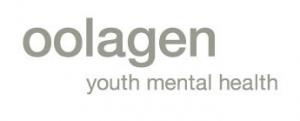
Who Gets To Name The Problems That We Face? A Narrative Approach To Naming Problems, Narrative Mornings with Oolagen, Toronto, 2014.
